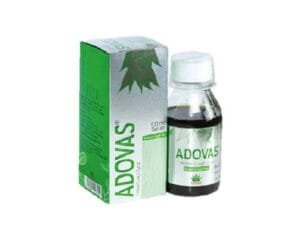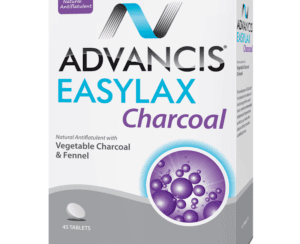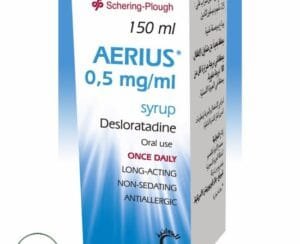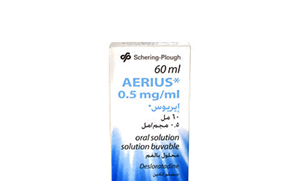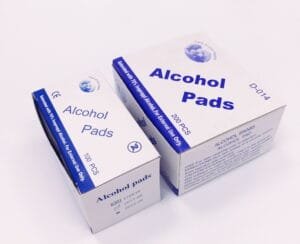PHARMACY ONLY
People can buy products classified as ‘pharmacy medicines’ (P) but only from a pharmacy and in the presence of a pharmacist. These medicines, also called ‘pharmacy-only medicines’, are not usually displayed on open shelves. A rectangular box enclosing the letter P appears on the packaging of pharmacy medicines.
This medicine packs are generally for short term treatment of medical conditions that can be identified readily and are not likely to persist, although they may sometimes be available for the management of long term conditions. Pharmacy medicines need to be used more carefully than medicines sold in other retail outlets and people may require special advice on treatment.
Pharmacy staff may discuss with the purchaser how the medicine is to be used, ask questions to make sure that the chosen medicine is appropriate, and check if the person needs to see another health professional such as a doctor. The pack generally includes advice to see a health professional if the condition does not improve or gets worse or, in the case of long term conditions, if a doctor has not been consulted for some time.
Compared to the packs available in retail outlets, medicines like ibuprofen and paracetamol can be bought in larger packs under a pharmacist’s supervision. But there may still be a limit on how much pharmacy medicine a person can buy. This helps prevent inappropriate and possibly harmful long-term use and reduces delay in diagnosing a condition that requires different treatment. Other examples of pharmacy medicines include tablets for emergency contraception and medicines containing codeine for treating pain that is not relieved by aspirin, ibuprofen or paracetamol alone.
Showing 1–48 of 1066 results
-

Abz Albedazole Deworming Susp 10Ml
50KSh Add to cart Order Via WhatsApp -

Abz Albedazole Deworming Tabs 400Mg
50KSh Add to cart Order Via WhatsApp -

Ace Paracetamol Suppository 125mg 10’s
300KSh Add to cart Order Via WhatsApp -

Acepar MR Caplets 10’s
350KSh Add to cart Order Via WhatsApp -

Acepar Sp Tablets 10’s
350KSh Add to cart Order Via WhatsApp -

Acriptega Tablets 30’s
4,650KSh Add to cart Order Via WhatsApp -

Actifed Wet Cough And Cold Syrup 100ml
400KSh Read more Order Via WhatsApp -

Actin Gel Rub 30
400KSh Add to cart Order Via WhatsApp -

Action Antipyretic tablets 10’s
100KSh Add to cart Order Via WhatsApp -

Action Tablets 20’s
200KSh Add to cart Order Via WhatsApp -

Activated Charcoal Tablets 100’s
900KSh Add to cart Order Via WhatsApp -

Actrapid Flexpen 100iu/ml 3ml 5’s
5,000KSh Read more Order Via WhatsApp -

Acyclovir 5% Cream 10GM
350KSh Read more Order Via WhatsApp -

Adol 125mg Suppositories 10’s
500KSh Add to cart Order Via WhatsApp -

Adol 250mg Suppositories 10’s
500KSh Add to cart Order Via WhatsApp -

Adovas Syrup 100ml
300KSh Add to cart Order Via WhatsApp -

Advancis Easylax Charcoal Tablets 45s
1,700KSh Add to cart Order Via WhatsApp -

Advancis Extra Throat Relief Lozenges 20’s
900KSh Add to cart Order Via WhatsApp -

Aerius 5mg Tablets 30’s
3,460KSh Add to cart Order Via WhatsApp -

Aerius Antihistamine SYRUP 150ML
2,600KSh Read more Order Via WhatsApp -

Aerius Oral Solution 0.5mg/ml 150ml
1,410KSh Add to cart Order Via WhatsApp -

Aerius Syrup 0.5mg/1ml 60ml
600KSh Read more Order Via WhatsApp -

Aerochambers Infants (0-18months) Orange
4,300KSh Read more Order Via WhatsApp -

Aerocort Inhaler 200md
1,200KSh Read more Order Via WhatsApp -

Aerovent Inhaler 200 Doses
1,350KSh Add to cart Order Via WhatsApp -

After Bite Classic 14ml
1,500KSh Add to cart Order Via WhatsApp -

Airtal 100mg Tablets 40’s
4,630KSh Add to cart Order Via WhatsApp -

Alatrol Syrup 30ml
150KSh Add to cart Order Via WhatsApp -

Alatrol Syrup 30ml
150KSh Add to cart Order Via WhatsApp -

Alatrol Syrup Allergy Relieve 5mg/5ml 60ml
120KSh Add to cart Order Via WhatsApp -

Albasol Suspension 10ml
50KSh Add to cart Order Via WhatsApp -

Alcohol pads wound cleaner (100 pcs)
300KSh Add to cart Order Via WhatsApp -

Aldara 5% Cream Sachets 12’s
15,650KSh Add to cart Order Via WhatsApp -

Aldara 5% Pump Cream 2g
13,250KSh Read more Order Via WhatsApp -

Alerchek 0.1% Eye Drops 5ml
630KSh Add to cart Order Via WhatsApp -

Alerchek 0.2% Eye Drops 2.5ml
750KSh Add to cart Order Via WhatsApp -

Alerid Syrup 30ml
100KSh Add to cart Order Via WhatsApp -

Alka Seltzer Original Tablets 10’s
800KSh Add to cart Order Via WhatsApp -

Allergo Comod 2% 10ml
1,070KSh Add to cart Order Via WhatsApp -

ALLUCID SUSPENSION 100ML
150KSh Add to cart Order Via WhatsApp -

Almax forte sachets 30`s
1,330KSh Add to cart Order Via WhatsApp -

Almax Suspension 225ml
1,200KSh Add to cart Order Via WhatsApp -

Alphagan 1.5mg/ml Eye Drops 5ml
2,070KSh Add to cart Order Via WhatsApp -

Alugel Syrup 100ml
100KSh Add to cart Order Via WhatsApp -

Alzolam 0.5mg Tablets 100’s
4,500KSh Add to cart Order Via WhatsApp -

Amaryl 2mg Tablets 30’s
1,800KSh Add to cart Order Via WhatsApp -

Amaryl 4mg Tablets 30’s
1,800KSh Add to cart Order Via WhatsApp













